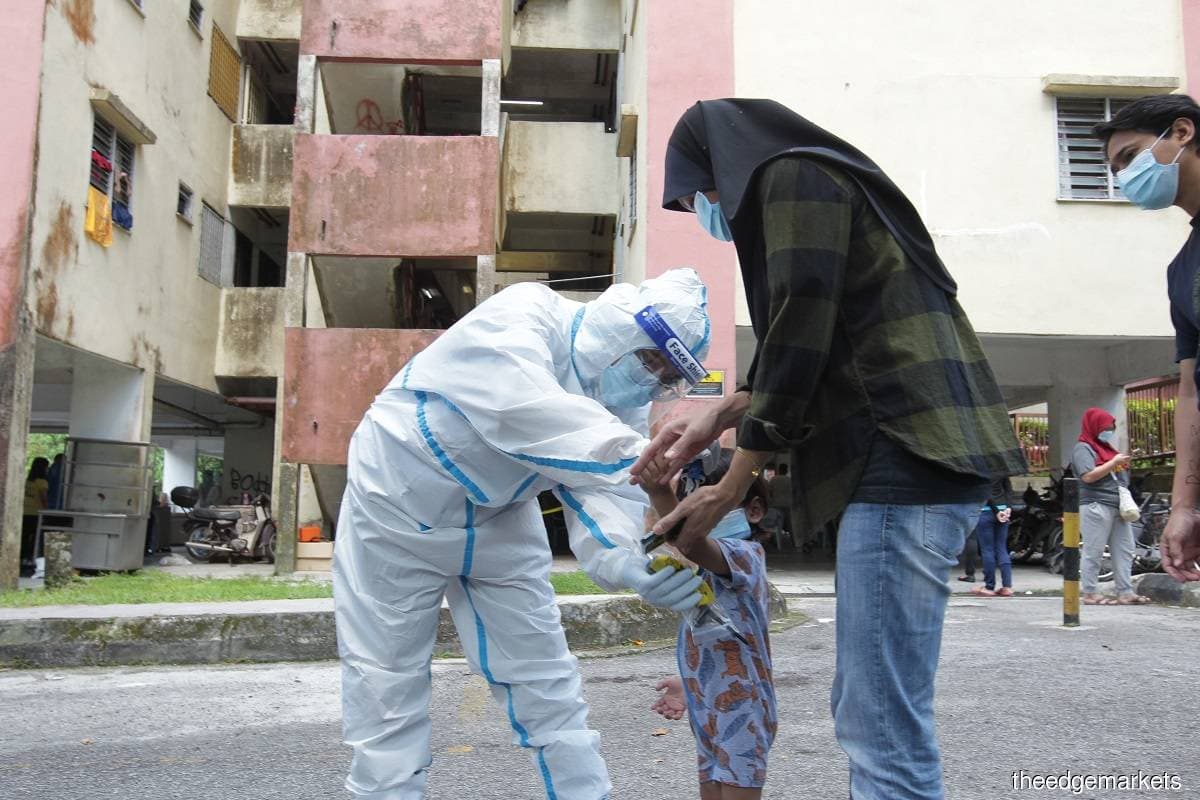
KUALA LUMPUR (July 29): Malaysia reported 13 new cases of Covid-19 as of noon today, raising the country’s total to 8,956 cases.
No new clusters were reported, thus maintaining the number of active clusters at 25, said health director-general Datuk Dr Noor Hisham Abdullah in a statement.
He said five Covid-19 patients have recovered, bringing the total number of recoveries in the country to 8,612 or 96.2% of overall cases.
The number of active cases rose to 220 from 212 yesterday. There were two patients in intensive care unit and one of them needed ventilator support.
Noor Hisham said the 13 new cases — a drop from 39 yesterday — comprises five local transmissions (three Malaysians and two foreigners) and eight imported cases.
The three Malaysian patients were found in Johor (through screening of the workplace), Sarawak (from the Sentosa cluster) and Sabah (in Queen Elizabeth Hospital, Kota Kinabalu), he said.
Of the two cases involving non-Malaysians, one was from the Mambong cluster in Sarawak while the other was detected in Perlis during a screening of illegal immigrants before being transferred to the Kangar Immigration Detention Centre.
Among the eight imported cases, four were Malaysian returnees while the other four were foreigners who were allowed to enter the country, Noor Hisham said.
Two of the patients had returned from the UK and two others from India. The others had returned from the Philippines, Pakistan, Gambia and Ukraine.
Malaysia’s Covid-19 death toll remained at 124, added Noor Hisham.
Updates on Mambong and Sentosa clusters in Sarawak
For the Mambong cluster, Noor Hisham said 198 people have been screened so far, involving 188 Malaysians and 10 non-Malaysians.
From the total, seven (including two foreigners) tested positive for the virus.
At the Sentosa cluster, 1,026 people have been screened of which 31 tested positive, 888 tested negative while 107 are awaiting their results.
Noor Hisham said the screening covered healthcare workers and their family members, workers of a cleaning company, security guards, patients, family members and close contacts.
He said members of the Sentosa cluster spanned over two generations. The source of infection is still under investigation, but early investigations indicated that it was linked to activities in the community.




